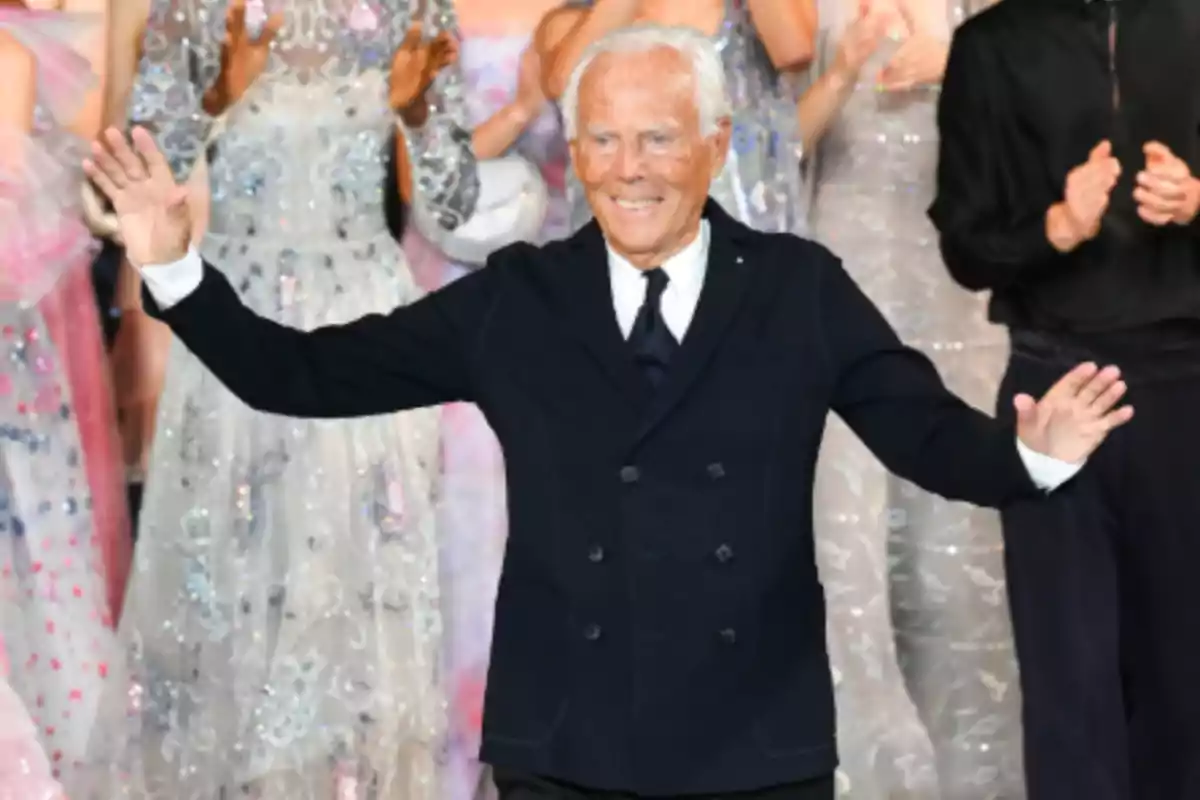
Giorgio Armani dies at 91, icon of fashion and independent luxury
The Italian designer left a unique legacy, uniting Hollywood, tailoring, and independent luxury
Giorgio Armani passed away on September 4, 2025 at the age of 91, leaving behind a monumental legacy in global fashion. Until his final days, he personally led Giorgio Armani S.p.A., the company he founded in 1975, serving as chairman, CEO, and creative director.
The Armani Group announced that the designer died surrounded by his loved ones, after a life dedicated to work and constant innovation in fashion, design, sports, and philanthropy. His career, which spanned more than half a century, turned his name into a synonym for success, sophistication, and style.
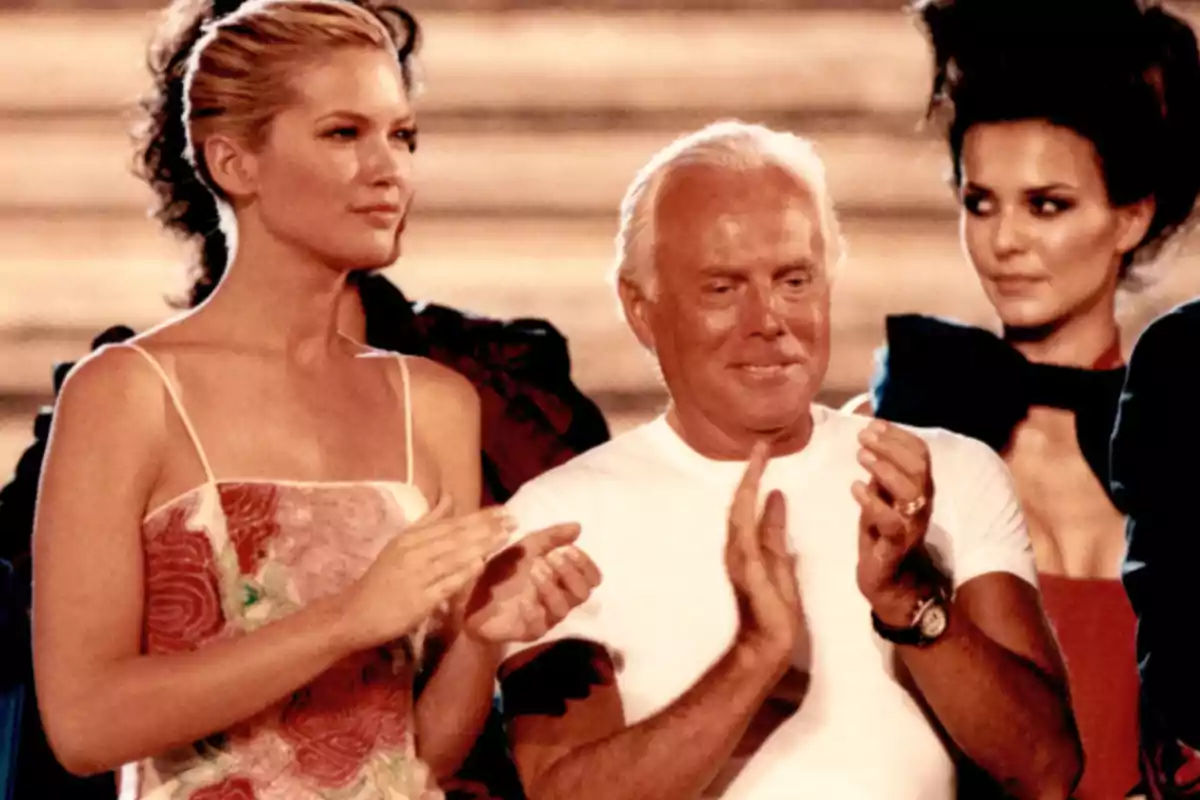
Armani founded a multibillion-dollar empire, independent of any conglomerate, with a personal fortune estimated by Forbes at more than 10 billion euros. His collections, hotels, and furniture lines always reflected his unmistakable aesthetic: clean, opulent, and elegant.
The sartorial revolution and Hollywood glamour
From the beginning, Armani redefined tailoring. In the mid-1970s he introduced unstructured, unlined jackets that flattered the body, a radical contrast to the rigid suits of the era. He later reinvented women's fashion with an elegant and functional masculine approach.
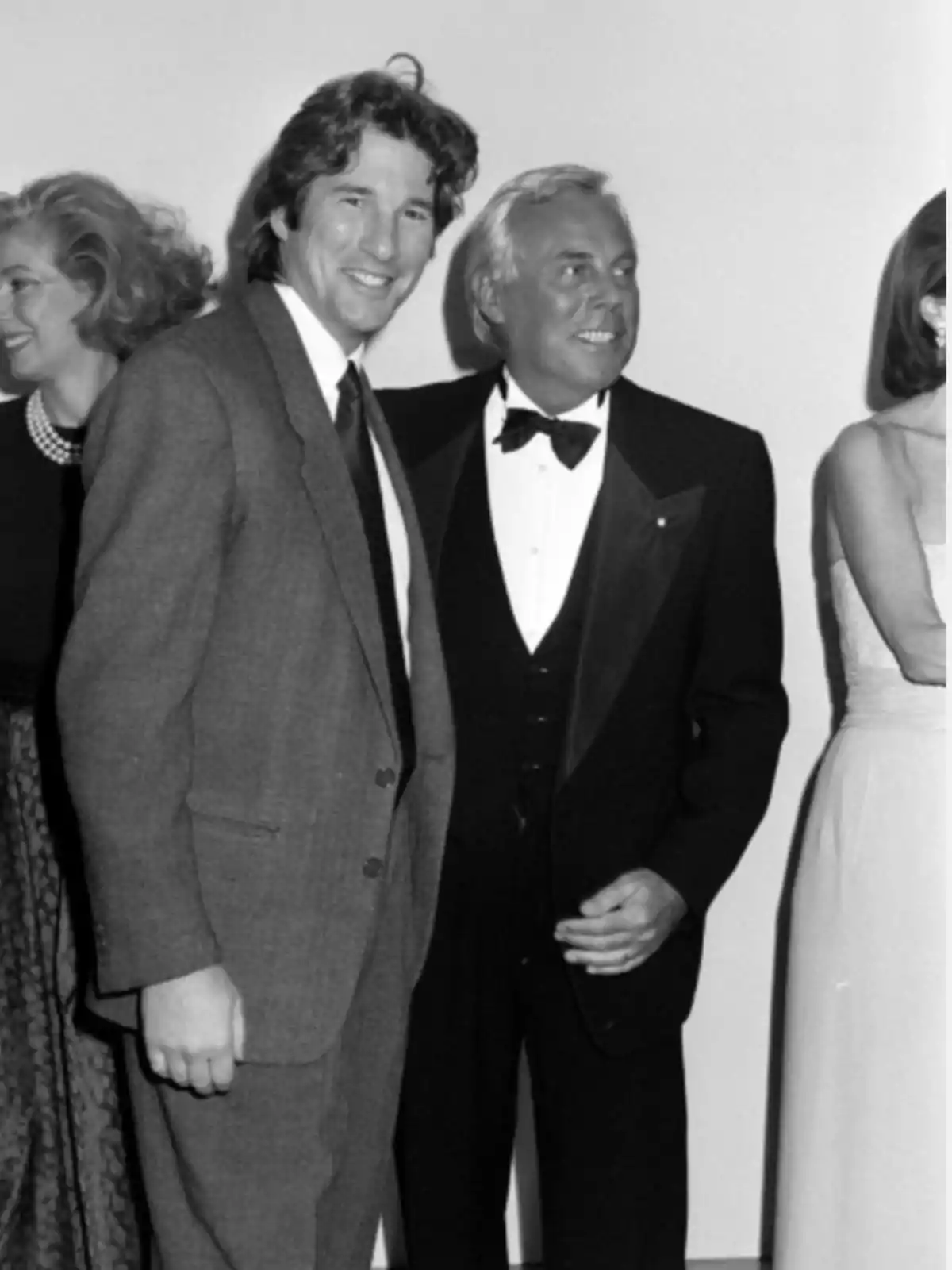
His style was consolidated in the 1980s with power suits for men and women, suits with broad shoulders, wide lapels, and a monochromatic silhouette, symbols of prosperity and authority. The film American Gigolo (1980), starring Richard Gere, immortalized his vision of clothing as power and sexuality.
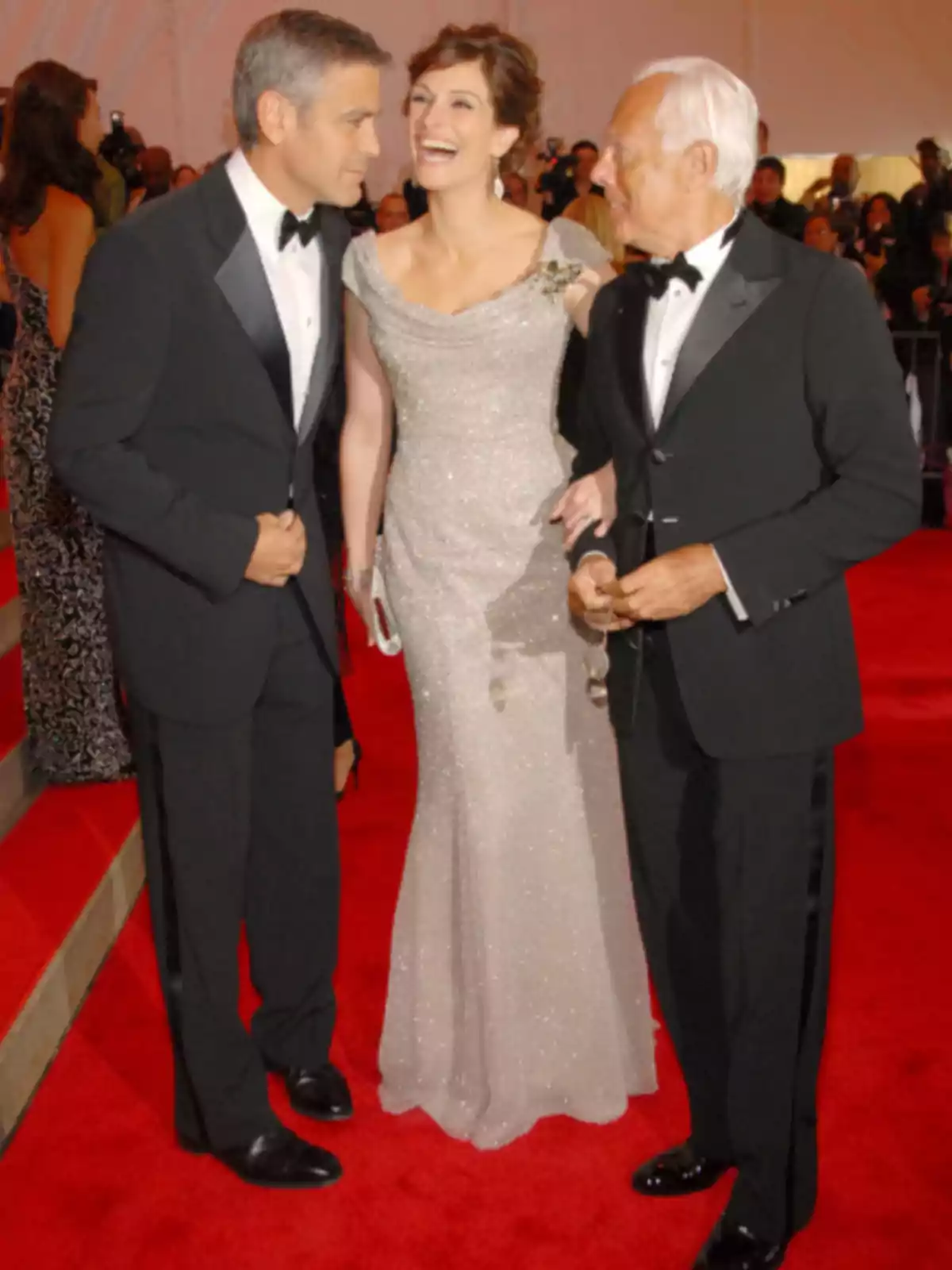
The relationship with Hollywood defined an era: Diane Keaton wore his beige jacket in 1978, Julia Roberts in 1990 and Jodie Foster in 1992, while stars such as Leonardo DiCaprio, Lady Gaga, George Clooney, and Cate Blanchett established lasting ties with the designer.
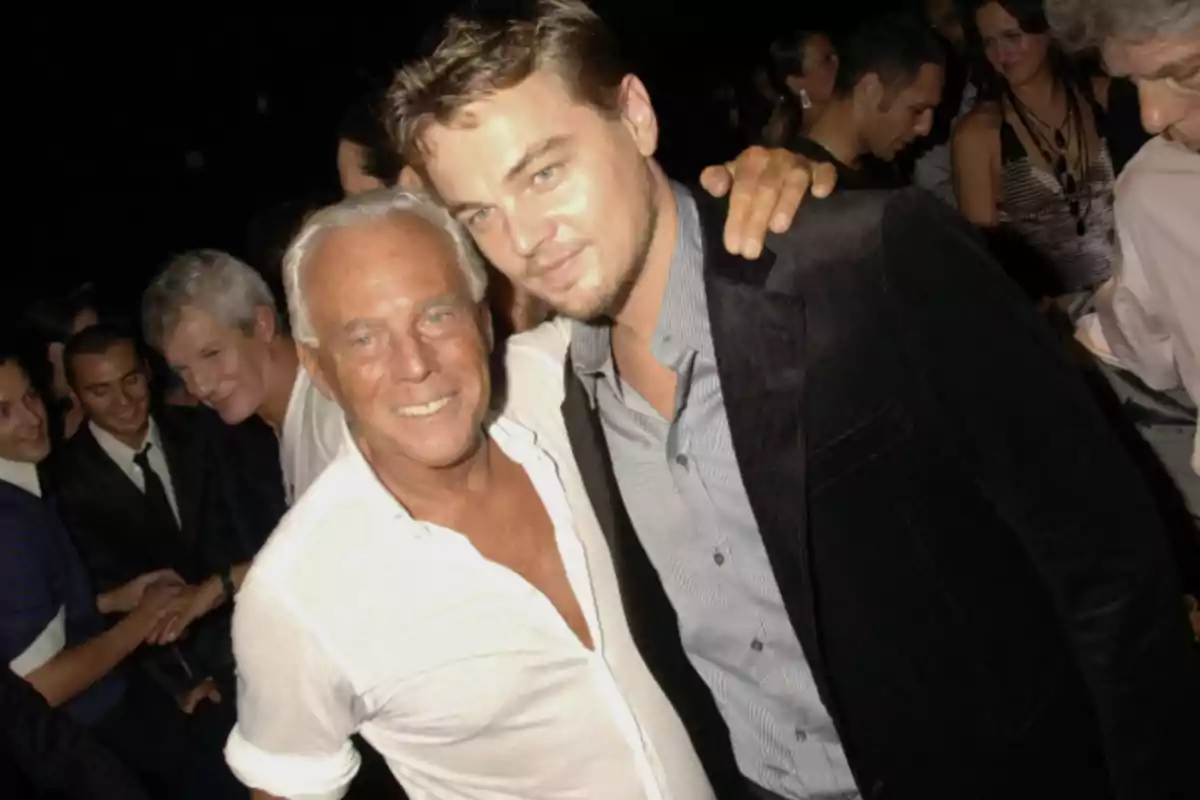
In 1988 he opened an office in Los Angeles and hired Wanda McDaniel to manage relationships with celebrities, ensuring that his clothing was featured on red carpets and at key events. Armani thus invented the modern era of fashion-celebrity, combining business strategy with glamour.
Diversification and business vision
Under the Armani Group are various lines: Giorgio Armani, Emporio Armani, EA7, Armani Collezioni, Armani Privé, and Armani/Casa, as well as the Armani Hotels in Dubai and Milan. Each project maintained Armani's aesthetic identity and demonstrated his comprehensive approach: from fashion to decoration and lifestyle.
He owned factories, production and distribution centers, as well as flagship stores, including an entire block on Via Manzoni in Milan. His financial and creative independence was a constant, rejecting alliances with conglomerates such as LVMH or Kering, and prioritizing his own sustainable decisions.
Even during the COVID-19 pandemic, Armani remained a prudent and thoughtful leader, holding fashion shows without an audience and questioning fashion overproduction. In his autobiography Per Amore (2023), he defended the legacy of work ethic, environmental responsibility, and community as pillars of his vision.
Beginnings and personal life
Giorgio Armani was born on July 11, 1934 in Piacenza, Italy, and grew up influenced by his mother's elegance. He initially studied medicine in Milan, but soon turned to photography and fashion design, working at La Rinascente and later with Nino Cerruti on the Hitman line.
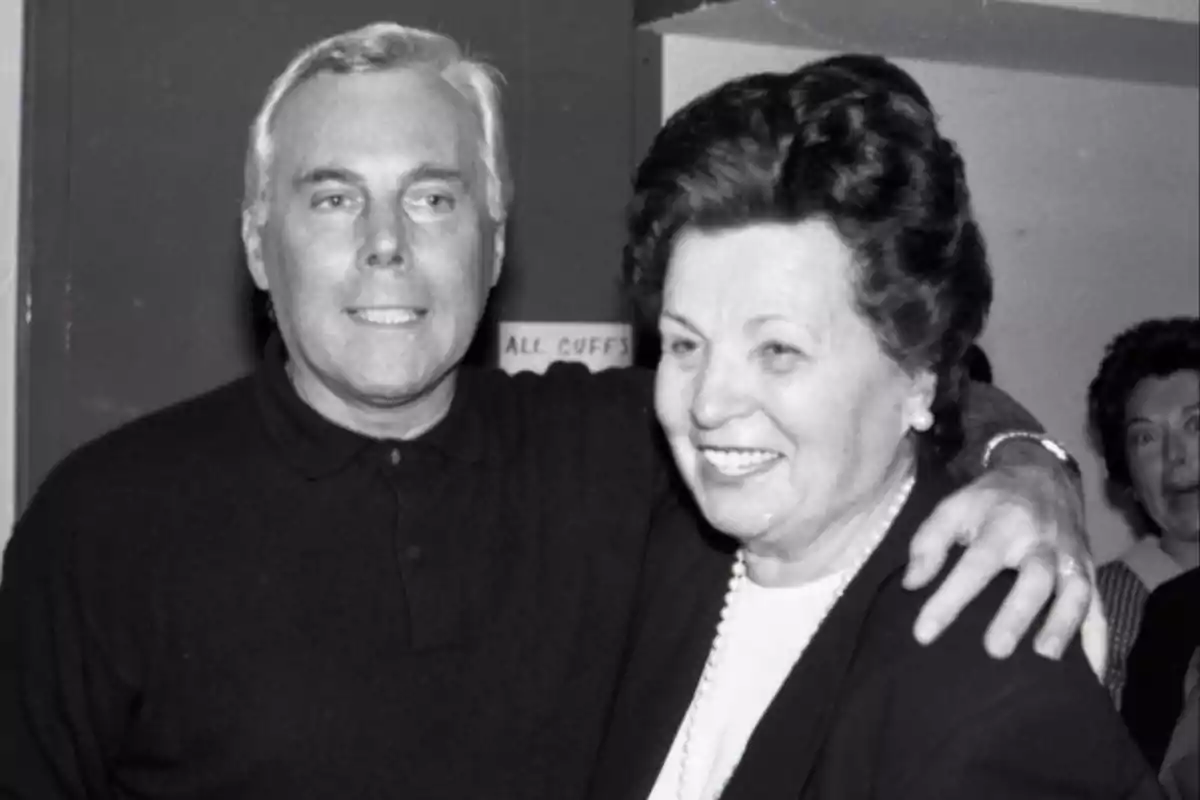
In 1965 he met Sergio Galeotti, an architect and his creative and personal partner, who convinced him to open his own company in 1975. Galeotti was his great love until his death in 1985, a blow that Armani overcame by dedicating himself completely to his work.
Armani was reserved, demanding, and meticulous. He maintained a close circle of trust, never smoked and rarely drank, and was known for a strong character that defined both his leadership and his work ethic.
Legacy and significance
Armani's influence transcended generations: his relaxed and elegant aesthetic continues to shape contemporary fashion, while his independent business approach established a unique model in the industry.
His name and creations are a cultural synonym for sophistication, success, and good taste. Until the end, Armani demonstrated that fashion was not only glamour, but also responsibility, vision, and commitment to a lasting legacy.
More posts: